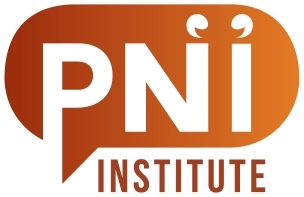On our next PNI Institute call, we will discuss how PNI relates to participatory theatre. Please see details. Here are some quick notes on themes that resulted from our previous call on PNI and anthropology.
- Date Friday December 9 (it’s always the second Friday of the month)
- Time California 7 00 New York 10 00 London 15 00 Amsterdam 16 00 South Africa 17 00 Melbourne 02 00 (Saturday)
- Place Please follow this link to join the Zoom meeting.
Ethics and participation. We talked about how there may be times where it is more ethical to use traditional research methods (such as those of anthropology or sociology) than PNI. Participation seems like it is always a good thing, but there are times when it is not possible, and it’s dangerous to pretend that participation it is possible (or happening) when it is not.
In any research project there are three groups: the researched, the researched for, and the researchers. Any one of these groups can cause participation to fail.
- When the researched cause participation to fail, people refuse to participate in doing anything other than providing simple information (such as could be used in traditional research). They don’t want to tell stories, or reflect on stories, or participate in sensemaking. Or they deliberately choose shallow stories that don’t delve deep into anything. They might fill out a three question survey, but they aren’t willing or able to participate in meaningful story exchange.
- When the researched for cause participation to fail, the project funders or approvers aren’t comfortable with the people who tell the stories being part of the research process and come up with excuses to keep them out of it. They might insist that the project be talked about as participatory, while secretly working to keep meaningful participation out of it.
- When researchers cause participation to fail, they may have beliefs about potential participants that weaken potential participation, such as: they won’t understand; they can’t handle the complexity; nobody cares; they’re too combative; I can’t hand this over to them; and so on. Or they might feel proprietary about the project, or about the methods they use, and not want to share them with their project participants.
When participation is not going to work, it is better to do traditional research than to pretend to do participatory work, because the failure of such a pretend project may be attributed to participation – or worse, to the participants themselves. Participatory narrative inquiry only works when participation is possible, and all three groups must agree for it to be possible. Without adequate participation, it’s better for PNI to turn into narrative inquiry than for it to turn into a farce.
PNI and change. We talked about how anthropology can seem (and can sometimes be) more respectful to communities because it doesn’t come with an intent to create change. We talked about how PNI can seem a manipulative approach, striding in boasting about “positive change.” Then we talked about how not all PNI projects are about change: quite a few focus on other things, like:
- getting to know our community better
- mapping our strengths and weaknesses
- getting new ideas
- discovering new sources of energy
- connecting with each other
- learning new things about ourselves
- getting a better sense of who we are as a community or organization
In other words, change is part of PNI, but it does not have to be the only or even the primary goal of a project. More than anything else, PNI is about people surprising themselves. This often leads to positive change, but it’s usually indirect, in that change emerges naturally from understanding, accepting, and appreciating the way people are right now.
Of course, sometimes people need some help surprising themselves. Sometimes a PNI facilitator does do a bit of manipulation in the sense of manipulating conditions so that people can surprise themselves – for example, it might be manipulative to bring stories to where they need to go. Transparency and accountability can help. It’s important to explain why things are being done as they are, to respond to questions and concerns, and to be ready to change the project if people want or need something different. Sometimes people aren’t ready for the degree or type of change the facilitator has envisioned, and it’s important to be ready (and able) to scale down one’s ambitions to match what participants are willing and able to support. You could say that PNI works toward positive change, but – ideally – in a way that is humble and flexible, with respect for the feelings and needs of those it supports. That might be the best way to describe change in PNI, even if in practice it might be partly aspirational.

